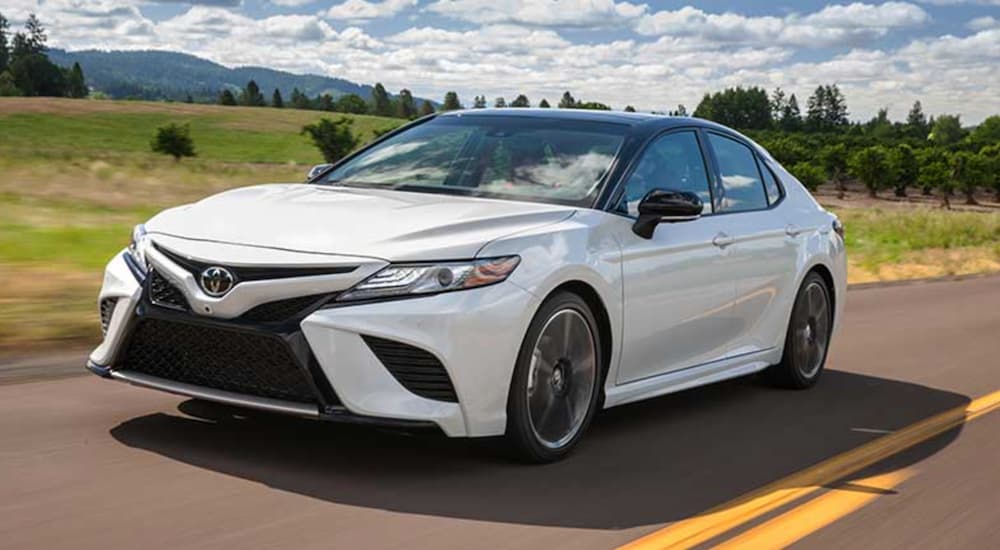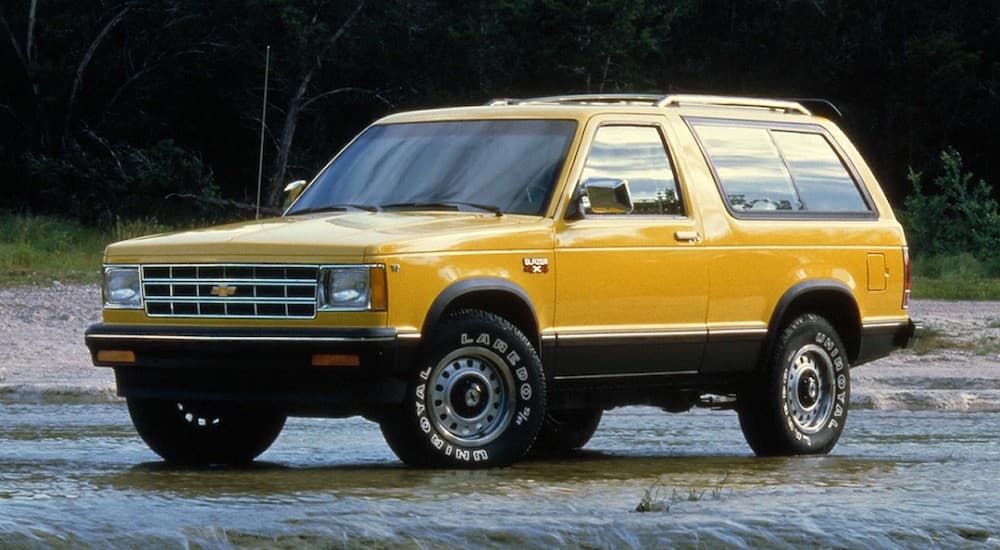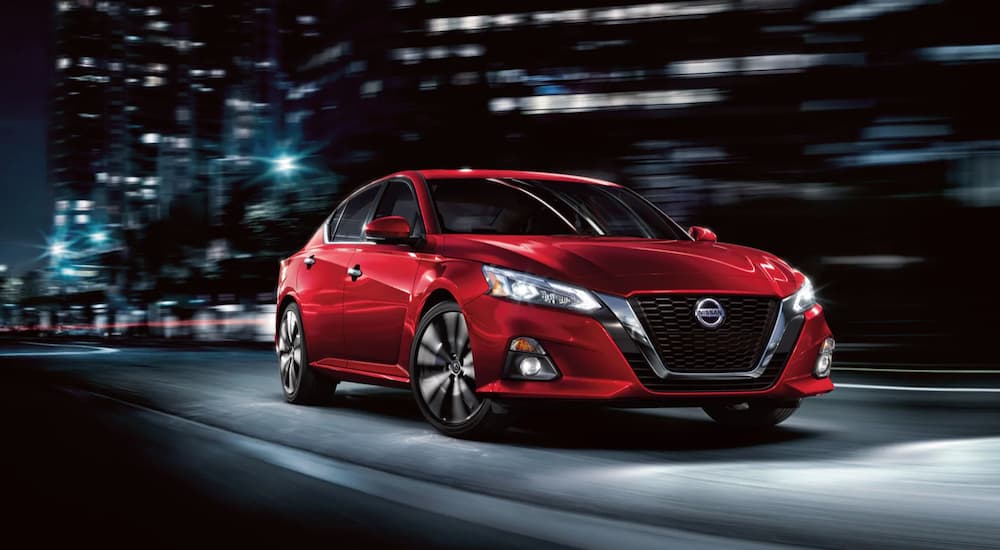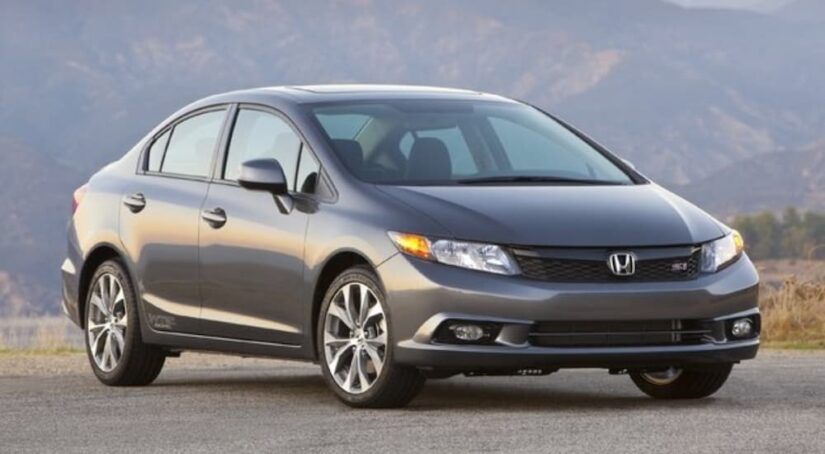On the hunt for a great pre-owned vehicle and looking for the best car sales in your area? We don’t blame you for trying to save as much money as possible. Getting a new vehicle has never been more expensive; conversely, sales of used cars have never seemed like such a viable option as they are now. There are various pros and cons to purchasing a pre-owned vehicle. Obviously, you could be saving a significant amount of money and generally avoiding the initial depreciation. New cars tend to lose their value fairly quickly; the old adage that your car sharply declines in value as soon as you drive it off the lot tends to ring true, and getting a used car means you aren’t losing that original value. However, there’s also the chance of getting a vehicle with hidden problems, and you may end up spending all the money you saved on repairs and maintenance.
Like buying anything secondhand, getting a used car can be a bit of a gamble. You want to save money, but not at the cost of getting back a malfunctioning vehicle. Here’s a guide to buying used cars that will let you hit that sweet spot of saving money and still getting a quality car. You’ll need to do a decent amount of research before and during your trip to your local dealership (or wherever you’re finding the used car), but it’s worth your time; it might end up saving you serious cash, and will help you make sure you get the right vehicle for you and anyone you decide to bring along.

Research Is Key
Getting a used car can be intimidating, but setting up good research beforehand can make your job much easier. The first thing to plan around is your budget. Like any car shopping trip, you want a flexible but defined budget for what you want to spend on your next pre-owned car. But remember that you’ll most likely need to spend some money on a pre-owned vehicle to refurbish it; if not, you’ll still need semi-regular maintenance on the car, so factor that into your budget if possible.
The next step in your pre-buy planning phase is to find a trusted source for used cars to purchase from. This may seem obvious, but it’s always a good idea to make sure you trust where you are buying your car from. You might find very low prices online or at a local shop, but you should always research and discover where the car came from and why it is as cheap as it appears. It’s not worth saving $1000 if the car has a faulty engine or if you can’t verify the vehicle’s previous owners. Similarly, if a deal seems too good to be true, it often will be; it’s unwise for both your financial and physical health to agree to purchase a car from an untrustworthy location or source. Luckily, most local dealerships offer a vast selection of used vehicles you can authenticate and feel comfortable purchasing.
If possible, you should always ask and see if you can get a digital or printed report on the full history of the vehicle you’re looking to purchase. You want to know how old the car truly is, how many miles have been put on it, the history of accidents and maintenance, etc. The goal here is to get a good estimate of how dependable the vehicle has been throughout its history. You never want to walk off the lot with your beloved used car only to find out it needs a metric tonne of repairs under the hood. That way, you know exactly what you’re buying, and you can estimate for yourself how reliable the vehicle will be for you going forward.

Know What You Can and Can’t Fix
We all love the idea of a fixer-upper. Getting a pre-owned car can be an opportunity to invest some money into a low-cost car and turn it into the vehicle of your dreams. But sadly, there are some things you can’t fix in a dysfunctional car or parts that are more troublesome than they are worth. When shopping for a used car, note what you might want to fix about the car should you buy it, and investigate to see if it’s possible or feasible for you to do at home or a repair shop. You’ll also need to evaluate how much those processes will cost you.
Specifically, a car’s engine, its most vital component, is tricky to fix on your own, and we advise that you consult a professional. If the car you’re shopping for has significant engine issues, it’s most likely something you should pass on. Similarly, car parts like your transmission or gasket are not worth spending thousands of dollars on to repair if you can find a similarly priced vehicle without the problems.
Get Behind The Wheel
Test driving a vehicle you’d like to purchase is an increasingly common practice and for good reason. There’s no better way to determine whether a car could be right for you than to try it out for yourself. Getting behind the wheel of a pre-owned car can tell you what you need to know; how it handles and drives, anything that is missing or wrong with the car, etc. You can also learn some more basic details about the car, such as how comfortable it is to sit in, how much legroom you might have, the stereo system, etc.
These may seem like minor details, but you want a car that is going to check off every box on your list. Cars, even pre-owned ones, can be expensive; ensure you’re getting your money’s worth. Most local dealerships will include this test drive option, giving you extended time to familiarize yourself with a pre-owned vehicle and its quirks. After your test drive, be sure to note what you liked and didn’t like about that particular car and compare it to other pre-owned or new options available to you before making your purchase.

Is a Used Car Your Best Option?
The most important factor in deciding whether or not to get a pre-owned vehicle will be different for everyone. When purchasing any car, think about what you are gaining. Is this the first car for a younger family member, or the car of your dreams that you’ve been building towards and saving up money for years? As we’ve stated before, think about how much money you are willing to spend on your car. If you want something completely unscathed, it may be worth it to bite the bullet and get an all-new vehicle with all the bells and whistles, all the new and exciting features, and the unblemished record to keep your concerns at bay.
But it’s hard to deny the sheer value you save purchasing a pre-owned vehicle. Even a car in great condition that’s only a few years old can be thousands of dollars cheaper than a brand-new counterpart. Nowadays, with the help of the internet, a well-informed car shopper will find it easier than ever to find a car they can fall in love with that happens to be pre-owned. We hope that this guide has been helpful in determining the major steps you’ll need to take to prepare yourself for your next used vehicle, and we hope it keeps some money in your pocket, too!



